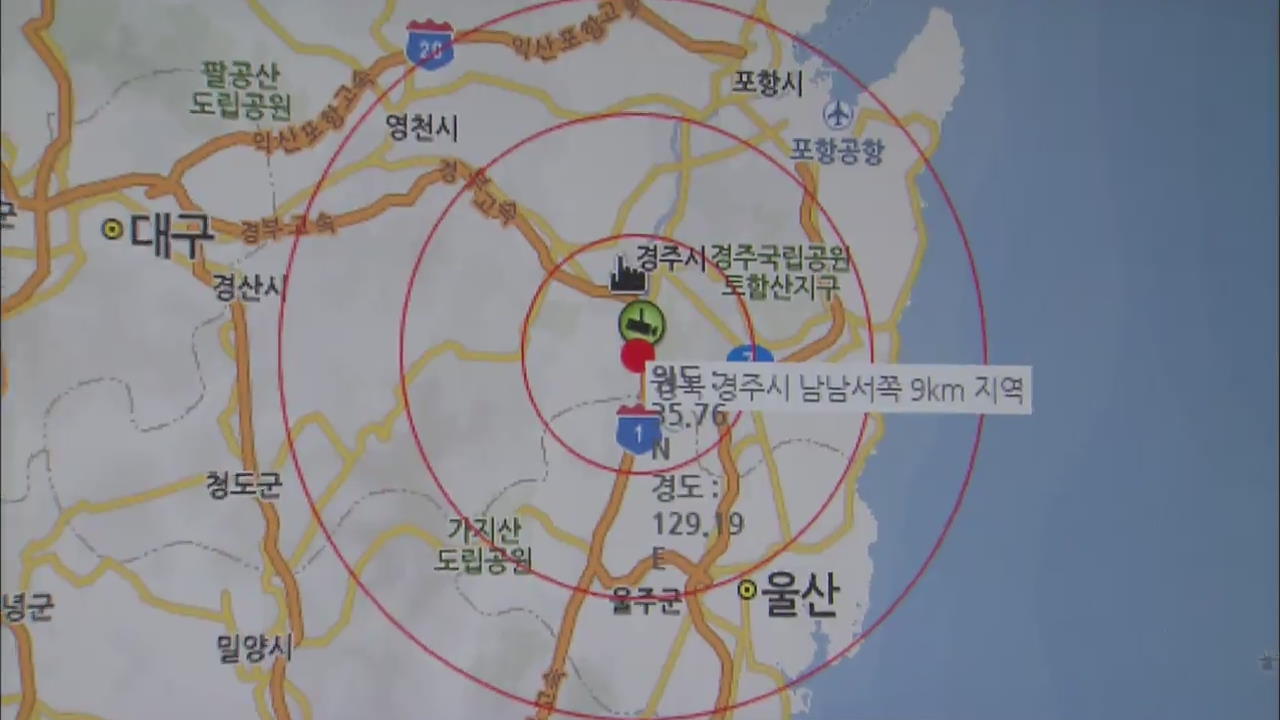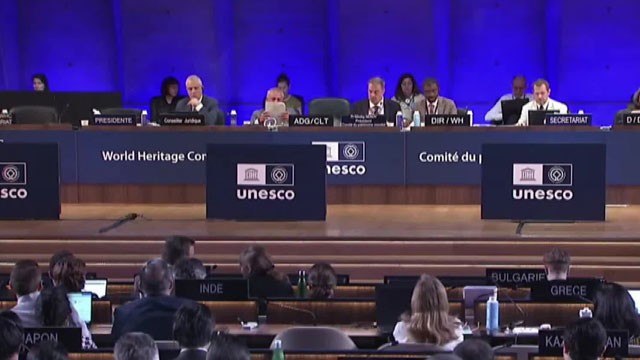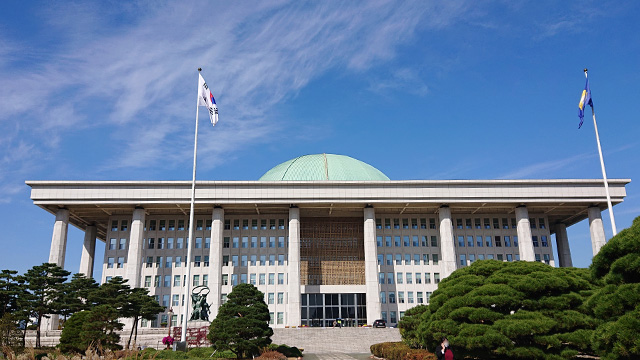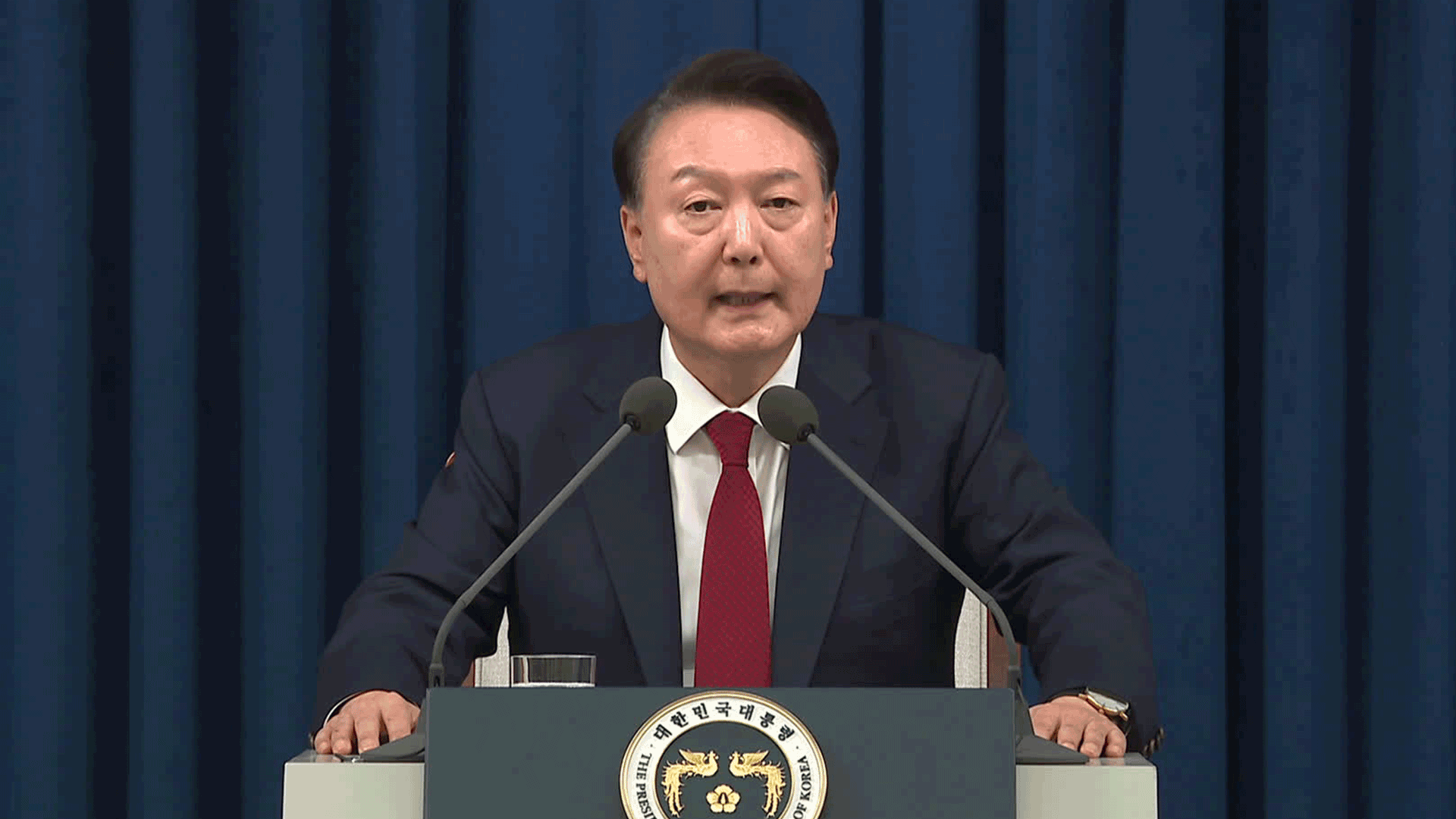ECONOMY & INDUSTRY
입력 2016.12.29 (15:49)
수정 2016.12.29 (16:01)
읽어주기 기능은 크롬기반의
브라우저에서만 사용하실 수 있습니다.
[Anchor Lead]
The year of 2016 ushered in rough seas for Korean shipping and shipbuilding sectors, which dealt a blow to the overall economy. Meanwhile, another hotly debated topic was the implementation of the Anti-Corruption and Bribery Prohibition Act, better known as the Kim Young-ran Law. Here's a roundup of major news headlines in the economy this past year.
[Pkg]
Hanjin Shipping, a major domestic container transport firm, failed to overcome the long recession in the shipping industry and eventually filed for court receivership in late August. This sparked a worldwide logistics crisis and inflicted massive damage to Korea's shipping sector. It took 3 months after the request for court receivership for all 141 of Hanjin's vessels to unload cargo at global ports, putting an end to the logistics chaos. However, following a due diligence report in which it was assessed that it would be better to liquidate the shipping firm, Hanjin has effectively entered liquidation procedures. Korean shipbuilders which once constructed 70 percent of all global vessels also struggled this year. A plunge in orders led to enormous deficits and shipbuilding firms are currently undergoing a major restructuring process. The nation's big 3 shipbuilders, Hyundai Heavy Industries, Samsung Heavy Industries and Daewoo Shipbuilding & Marine Engineering, have announced self-rescue measures such as disposal of assets, a cutback in shipbuilding facilities and a 30 percent reduction in workforce. Their partner firms will also inevitably face difficulties. In other news, the Kim Young-ran anti-graft law made headlines this year. The Anti-Corruption and Bribery Prohibition Act applies to some 40-thousand entities including central government offices, courts, the national assembly, public agencies, schools and media companies. The law bans illicit favors and bribery and stipulates penalties for violators.
[Soundbite] Sung Yung-hoon(Anti-Corruption & Civil Rights Commission) : "All corruption begins from an innocent meal or a glass of drink.The purpose of the law is to prevent that very first step."
However, with the law putting a damper on consumer sentiment, some industries including the agriculture, livestock, dining and floriculture sectors have voiced complaints.
[Soundbite] Flower Shop Owner : "Prices have dropped by half.Twenty flowers cost around USD 2.50-3.30.I'm seriously considering a change of business next year."
[Soundbite] Restaurant Owner : "Since the Kim Young-ran Act took effect, customers havebeen canceling reservations on a scale we haven't seen before."
There's also confusion over interpretation of the law regarding its permissible limits. However most citizens have reacted positively to the new law, expressing hopes for a society free of corruption and irregularities.
The year of 2016 ushered in rough seas for Korean shipping and shipbuilding sectors, which dealt a blow to the overall economy. Meanwhile, another hotly debated topic was the implementation of the Anti-Corruption and Bribery Prohibition Act, better known as the Kim Young-ran Law. Here's a roundup of major news headlines in the economy this past year.
[Pkg]
Hanjin Shipping, a major domestic container transport firm, failed to overcome the long recession in the shipping industry and eventually filed for court receivership in late August. This sparked a worldwide logistics crisis and inflicted massive damage to Korea's shipping sector. It took 3 months after the request for court receivership for all 141 of Hanjin's vessels to unload cargo at global ports, putting an end to the logistics chaos. However, following a due diligence report in which it was assessed that it would be better to liquidate the shipping firm, Hanjin has effectively entered liquidation procedures. Korean shipbuilders which once constructed 70 percent of all global vessels also struggled this year. A plunge in orders led to enormous deficits and shipbuilding firms are currently undergoing a major restructuring process. The nation's big 3 shipbuilders, Hyundai Heavy Industries, Samsung Heavy Industries and Daewoo Shipbuilding & Marine Engineering, have announced self-rescue measures such as disposal of assets, a cutback in shipbuilding facilities and a 30 percent reduction in workforce. Their partner firms will also inevitably face difficulties. In other news, the Kim Young-ran anti-graft law made headlines this year. The Anti-Corruption and Bribery Prohibition Act applies to some 40-thousand entities including central government offices, courts, the national assembly, public agencies, schools and media companies. The law bans illicit favors and bribery and stipulates penalties for violators.
[Soundbite] Sung Yung-hoon(Anti-Corruption & Civil Rights Commission) : "All corruption begins from an innocent meal or a glass of drink.The purpose of the law is to prevent that very first step."
However, with the law putting a damper on consumer sentiment, some industries including the agriculture, livestock, dining and floriculture sectors have voiced complaints.
[Soundbite] Flower Shop Owner : "Prices have dropped by half.Twenty flowers cost around USD 2.50-3.30.I'm seriously considering a change of business next year."
[Soundbite] Restaurant Owner : "Since the Kim Young-ran Act took effect, customers havebeen canceling reservations on a scale we haven't seen before."
There's also confusion over interpretation of the law regarding its permissible limits. However most citizens have reacted positively to the new law, expressing hopes for a society free of corruption and irregularities.
■ 제보하기
▷ 카카오톡 : 'KBS제보' 검색, 채널 추가
▷ 전화 : 02-781-1234, 4444
▷ 이메일 : kbs1234@kbs.co.kr
▷ 유튜브, 네이버, 카카오에서도 KBS뉴스를 구독해주세요!
- ECONOMY & INDUSTRY
-
- 입력 2016-12-29 15:47:44
- 수정2016-12-29 16:01:45

[Anchor Lead]
The year of 2016 ushered in rough seas for Korean shipping and shipbuilding sectors, which dealt a blow to the overall economy. Meanwhile, another hotly debated topic was the implementation of the Anti-Corruption and Bribery Prohibition Act, better known as the Kim Young-ran Law. Here's a roundup of major news headlines in the economy this past year.
[Pkg]
Hanjin Shipping, a major domestic container transport firm, failed to overcome the long recession in the shipping industry and eventually filed for court receivership in late August. This sparked a worldwide logistics crisis and inflicted massive damage to Korea's shipping sector. It took 3 months after the request for court receivership for all 141 of Hanjin's vessels to unload cargo at global ports, putting an end to the logistics chaos. However, following a due diligence report in which it was assessed that it would be better to liquidate the shipping firm, Hanjin has effectively entered liquidation procedures. Korean shipbuilders which once constructed 70 percent of all global vessels also struggled this year. A plunge in orders led to enormous deficits and shipbuilding firms are currently undergoing a major restructuring process. The nation's big 3 shipbuilders, Hyundai Heavy Industries, Samsung Heavy Industries and Daewoo Shipbuilding & Marine Engineering, have announced self-rescue measures such as disposal of assets, a cutback in shipbuilding facilities and a 30 percent reduction in workforce. Their partner firms will also inevitably face difficulties. In other news, the Kim Young-ran anti-graft law made headlines this year. The Anti-Corruption and Bribery Prohibition Act applies to some 40-thousand entities including central government offices, courts, the national assembly, public agencies, schools and media companies. The law bans illicit favors and bribery and stipulates penalties for violators.
[Soundbite] Sung Yung-hoon(Anti-Corruption & Civil Rights Commission) : "All corruption begins from an innocent meal or a glass of drink.The purpose of the law is to prevent that very first step."
However, with the law putting a damper on consumer sentiment, some industries including the agriculture, livestock, dining and floriculture sectors have voiced complaints.
[Soundbite] Flower Shop Owner : "Prices have dropped by half.Twenty flowers cost around USD 2.50-3.30.I'm seriously considering a change of business next year."
[Soundbite] Restaurant Owner : "Since the Kim Young-ran Act took effect, customers havebeen canceling reservations on a scale we haven't seen before."
There's also confusion over interpretation of the law regarding its permissible limits. However most citizens have reacted positively to the new law, expressing hopes for a society free of corruption and irregularities.
The year of 2016 ushered in rough seas for Korean shipping and shipbuilding sectors, which dealt a blow to the overall economy. Meanwhile, another hotly debated topic was the implementation of the Anti-Corruption and Bribery Prohibition Act, better known as the Kim Young-ran Law. Here's a roundup of major news headlines in the economy this past year.
[Pkg]
Hanjin Shipping, a major domestic container transport firm, failed to overcome the long recession in the shipping industry and eventually filed for court receivership in late August. This sparked a worldwide logistics crisis and inflicted massive damage to Korea's shipping sector. It took 3 months after the request for court receivership for all 141 of Hanjin's vessels to unload cargo at global ports, putting an end to the logistics chaos. However, following a due diligence report in which it was assessed that it would be better to liquidate the shipping firm, Hanjin has effectively entered liquidation procedures. Korean shipbuilders which once constructed 70 percent of all global vessels also struggled this year. A plunge in orders led to enormous deficits and shipbuilding firms are currently undergoing a major restructuring process. The nation's big 3 shipbuilders, Hyundai Heavy Industries, Samsung Heavy Industries and Daewoo Shipbuilding & Marine Engineering, have announced self-rescue measures such as disposal of assets, a cutback in shipbuilding facilities and a 30 percent reduction in workforce. Their partner firms will also inevitably face difficulties. In other news, the Kim Young-ran anti-graft law made headlines this year. The Anti-Corruption and Bribery Prohibition Act applies to some 40-thousand entities including central government offices, courts, the national assembly, public agencies, schools and media companies. The law bans illicit favors and bribery and stipulates penalties for violators.
[Soundbite] Sung Yung-hoon(Anti-Corruption & Civil Rights Commission) : "All corruption begins from an innocent meal or a glass of drink.The purpose of the law is to prevent that very first step."
However, with the law putting a damper on consumer sentiment, some industries including the agriculture, livestock, dining and floriculture sectors have voiced complaints.
[Soundbite] Flower Shop Owner : "Prices have dropped by half.Twenty flowers cost around USD 2.50-3.30.I'm seriously considering a change of business next year."
[Soundbite] Restaurant Owner : "Since the Kim Young-ran Act took effect, customers havebeen canceling reservations on a scale we haven't seen before."
There's also confusion over interpretation of the law regarding its permissible limits. However most citizens have reacted positively to the new law, expressing hopes for a society free of corruption and irregularities.
이 기사가 좋으셨다면
-
좋아요
0
-
응원해요
0
-
후속 원해요
0

















이 기사에 대한 의견을 남겨주세요.